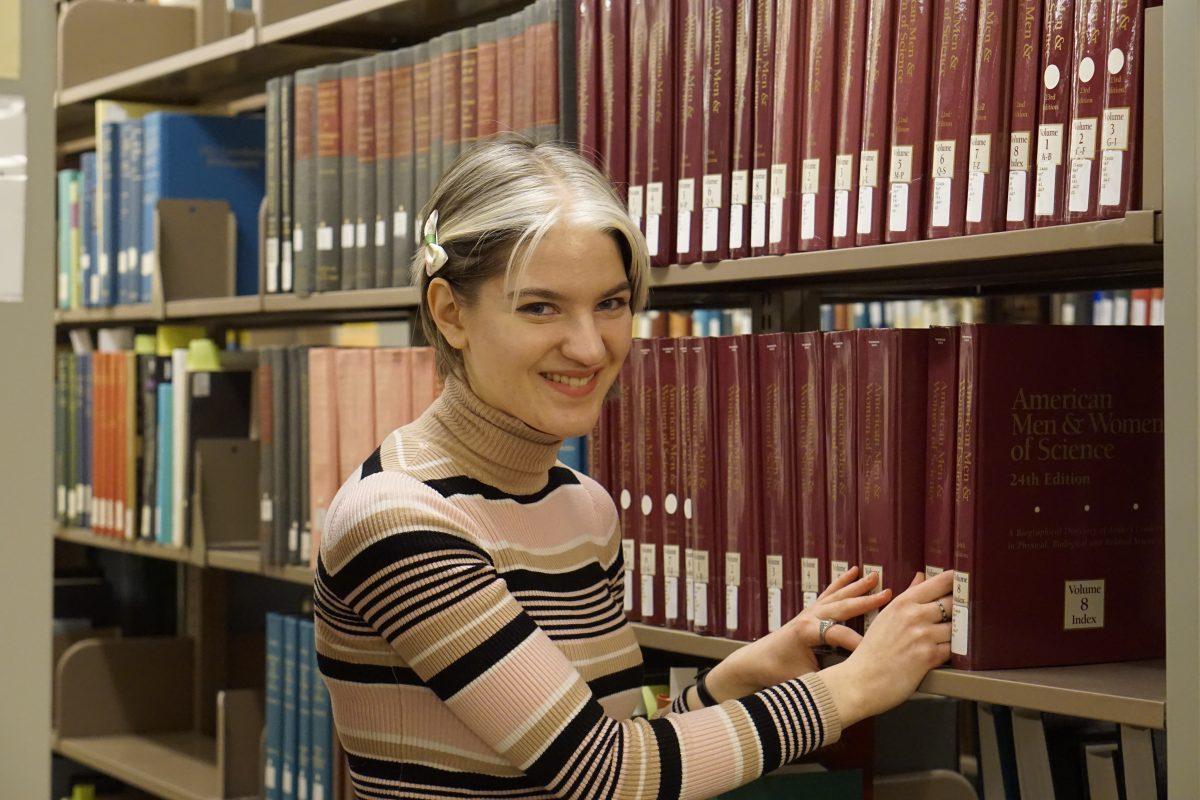Students in the Education Department have the unique opportunity to begin their teaching careers during their undergraduate years through the Teaching and Learning Studies Program. Through their participation in this program, students can receive certification to teach at the elementary, middle or high school level. Students can begin their coursework for this certification as late as their senior year, but due to the demands of the program, are encouraged to begin much earlier, noted Diane Tutin, a lecturer in education.
“Student teaching is an incredible opportunity at the undergraduate level. Wellesley College students graduate with a MA Teaching Certification that allows them to teach in any of the 50 states. This means that students aren’t in any way bound to teaching in Massachusetts. Our graduates teach all over the country,” Tutin said.
Students begin their student teaching during the first semester of their senior year, when they are required to spend at least one morning a week in a classroom. By the second semester of senior year, students are working in a classroom full-time, and all of their coursework is related to their experiences as a student teacher, Tutin explained. In some cases, students can do a fifth-year post-baccalaureate program to finish their requirements.
“When students earn certification at the undergraduate level, they can teach in public schools before pursuing their graduate degrees. When they do enter graduate school, they are more aware of their areas of interest and better able to specialize,” Tutin added.
Each year, the student teaching program cohort differs in size. This year, there are seven students in the Elementary Student Teaching cohort, but in the past, groups have been as large as 11 students.
Rebecca Van Dusen ’17 noted that her experience in the student teaching program and working at a Wellesley-area school has been rewarding.
“Being a student in the student teacher program has been almost as rich and rewarding as the teaching itself! I love the fact that since there are comparatively few of us in the class, we all know each other so well, and each get individual attention from our professors,” Van Dusen said.
Van Dusen said she was drawn to the Teaching and Learning Studies program at Wellesley because of her experiences working at the Child Care Center. “Being with the little ones there made me realize that working with children was what I wanted to do. I am a Psych major, which also helped my decision, since I feel like it equipped me with a knowledge of children themselves, and not just how to teach them,” she said.
Megumi Takada ’17 teaches in a first grade classroom at Amos A. Lawrence K-8 school in the Brookline School District. While she finds teaching extremely rewarding, she said the demands of the program can be taxing.
“Being a student teacher comes with challenges, as I am constantly trying to juggle my responsibilities both as a Wellesley student and as a full-time student teacher. It has been difficult being on a tight schedule and being off-campus for most of the day, especially when I am part of an org and still want to be involved with all of the events that happen on campus,” Takada said.
The twenty students she sees every day keep her going, despite the challenges, she added. In addition to that, the support and mentorship in the program makes Wellesley’s approach unique.
“I appreciate the individualized nature of the student teacher program at Wellesley. I have heard that large student teacher programs randomly match students to schools, but at Wellesley, we have the privilege of requesting which school we would like to student teach at,” Takada added.
Tutin explained that the students’ experiences in the classroom directly relate to their coursework. For example, she said, her course EDUC 310: Child Literacy and the Teaching of Reading allows the students to connect what they are learning to their weekly classroom assignments.
“Our students are assets to their classroom environments and our cooperating teachers love having them. Often the student teachers begin initiatives in their cooperating classrooms based on their own interests or current coursework. There is reciprocity in the relationships between student teachers and cooperating teachers,” Tutin said.
Tutin added that the cooperating teachers who mentor Wellesley students play an important role in their experience of being a student teacher.
“Much thought goes into the matching of Wellesley students with cooperating teachers. For me, what is most important is to find a cooperating teacher who is excited about mentoring a Wellesley College student, models lifelong learning, stays current in the field, nurtures positive relationships with their students and is highly invested in the work,” said Tutin.






